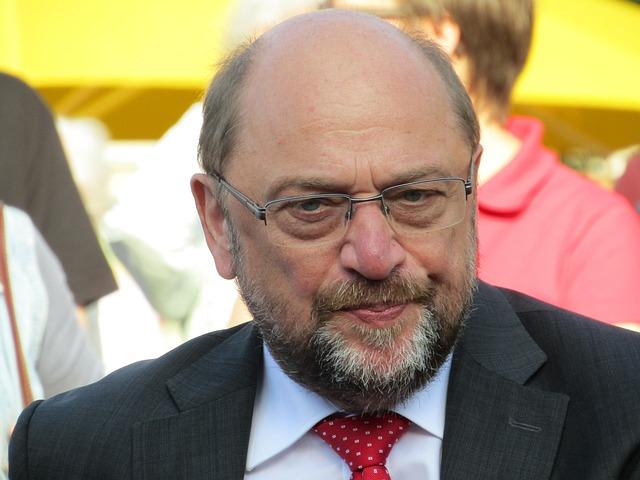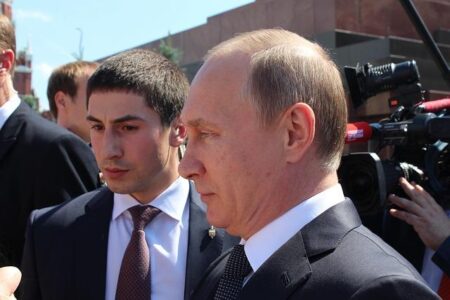Lawmakers in Germany have leveled serious allegations against the far-right Alternative for Germany (AfD) party, accusing its members of spying on the German armed forces on behalf of Russia. The claims, which have sparked intense debate within the Bundestag, raise fresh concerns about foreign influence and national security amid ongoing tensions between Germany and Moscow. According to reports detailed by Euronews.com, investigators are probing whether AfD operatives gathered sensitive military information to benefit Russian intelligence efforts. This unfolding controversy adds a new dimension to the scrutiny facing the AfD, already criticized for its pro-Russian stance and controversial political rhetoric.
Lawmakers Raise Alarm Over AfD Allegations of Espionage Targeting German Military
Several prominent German lawmakers have voiced serious concerns following allegations that the Alternative for Germany (AfD) party may have engaged in espionage activities targeting the German military. These accusations suggest that members or affiliates of the AfD have been collecting sensitive information potentially beneficial to Russian intelligence services. Authorities are reportedly investigating whether this covert information-gathering was conducted to influence national security decisions or to undermine the Bundeswehr from within. The implications of such espionage, if proven true, could severely damage trust in one of Germany’s key political groups and pose a significant risk to defense operations.
Lawmakers from multiple parties have called for increased scrutiny and transparency, emphasizing the following critical points:
- Safeguarding Military Secrets: Ensuring that no classified or strategically important data falls into foreign hands.
- Political Accountability: Demanding a thorough inquiry into AfD’s internal practices and affiliations.
- National Security Measures: Strengthening counterintelligence operations within governmental and military institutions.
| Concern | Impact | Status |
|---|---|---|
| Information Leak | Compromise of military strategies | Under investigation |
| Political Influence | Destabilization of democratic processes | Ongoing debate |
| Security Protocols | Review of military clearance procedures | In development |
Detailed Insights into the Accusations and Evidence Linking AfD to Russian Intelligence
Recent revelations have intensified scrutiny on the Alternative for Germany (AfD) party, as multiple sources link some of its members to covert collaboration with Russian intelligence agencies. According to lawmakers, intelligence intercepted communications suggest that AfD operatives passed sensitive information pertaining to the German military’s strategic operations. Among the evidence highlighted are encrypted messages exchanged via secure channels, where references to troop movements and defense preparedness were allegedly coded and transmitted. These activities, if verified, would represent a severe breach of national security and espionage under foreign influence.
Key pieces of evidence include:
- Surveillance records showing frequent contact between AfD officials and suspected Russian handlers
- Financial trails indicating unexplained transfers linked with intelligence operations
- Interrogation transcripts of whistleblowers within the party revealing intent to compromise military data
| Evidence Type | Description | Source | |||||||
|---|---|---|---|---|---|---|---|---|---|
| Intercepted Communications | Encrypted messages discussing military deployments | Federal Intelligence Service (BND) | |||||||
| Financial Records | Unusual payment flows linked to foreign agents | Parliamentary Financial Oversight Committee | |||||||
| Whistleblower Accounts | Calls for Strengthened Security Measures and Parliamentary Oversight in Response to Spying Claims
In the wake of unsettling espionage allegations, lawmakers across the political spectrum have united in demanding robust security enhancements within Germany’s military and intelligence agencies. Concerns highlight potential vulnerabilities exploited by foreign actors, spurring calls for immediate revision of existing counterintelligence protocols. Emphasis has been placed on the necessity of integrating advanced surveillance technologies and increasing inter-agency collaboration to fortify national defense mechanisms effectively. Moreover, critics argue that oversight structures require substantial reinforcement to prevent similar breaches in the future. Proposed measures include:
In RetrospectAs investigations continue, the allegations against the Alternative for Germany (AfD) party have sparked concerns over national security and foreign interference within Germany’s political and military institutions. Lawmakers from across the political spectrum have called for thorough scrutiny and transparency to ensure the integrity of the Bundeswehr and protect democratic processes. Euronews will continue to follow this developing story closely, providing updates as new information emerges. |




